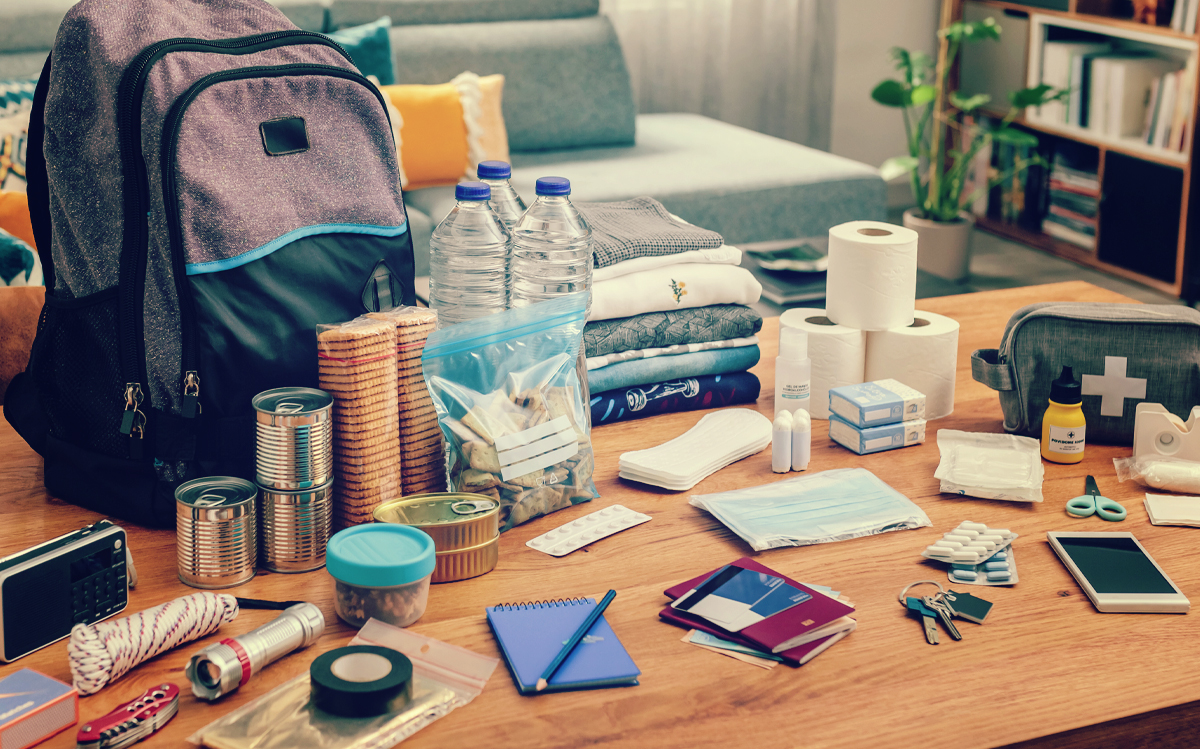With sweater weather upon us, the days are growing shorter and the temperature is beginning to drop. As we cozy up to the fall season, it’s the perfect time to prepare your home and yard for winter. Whether you're closing up your summer getaway or tackling outdoor chores, keeping electrical safety top of mind can prevent potential hazards.
Here are some key tips to help you stay safe this fall:
Safely closing your cottage
Before locking up the cottage for winter, it's essential to check that all electrical systems are secure and ready to withstand the colder months:
- Unplug everything: To protect your appliances and devices from power surges or electrical fires during the off-season, unplug all appliances, electronics, and chargers. Even items that are turned off can draw power and present a risk.
- Turn off the main breaker: Shutting off the main breaker is a good way to prevent electrical issues while the property is vacant. This will cut power to your entire cottage, ensuring no appliances are left on accidentally.
- Check electrical cords and outlets: Before you leave, check cords and outlets for any signs of wear or damage. Replace frayed wires and loose outlets to reduce the risk of fire.
- Outdoor electrical systems: If you have an outdoor electrical system, such as lights, outlets, or a dock power supply, ensure everything is properly weatherproofed. Make sure outdoor outlets are covered with waterproof caps to keep them protected from the elements.
- Maintain a safe temperature: If you're not heating the cottage while away, set the thermostat to at least 10°C (50°F) to prevent pipes from freezing and breaking during cold spells.
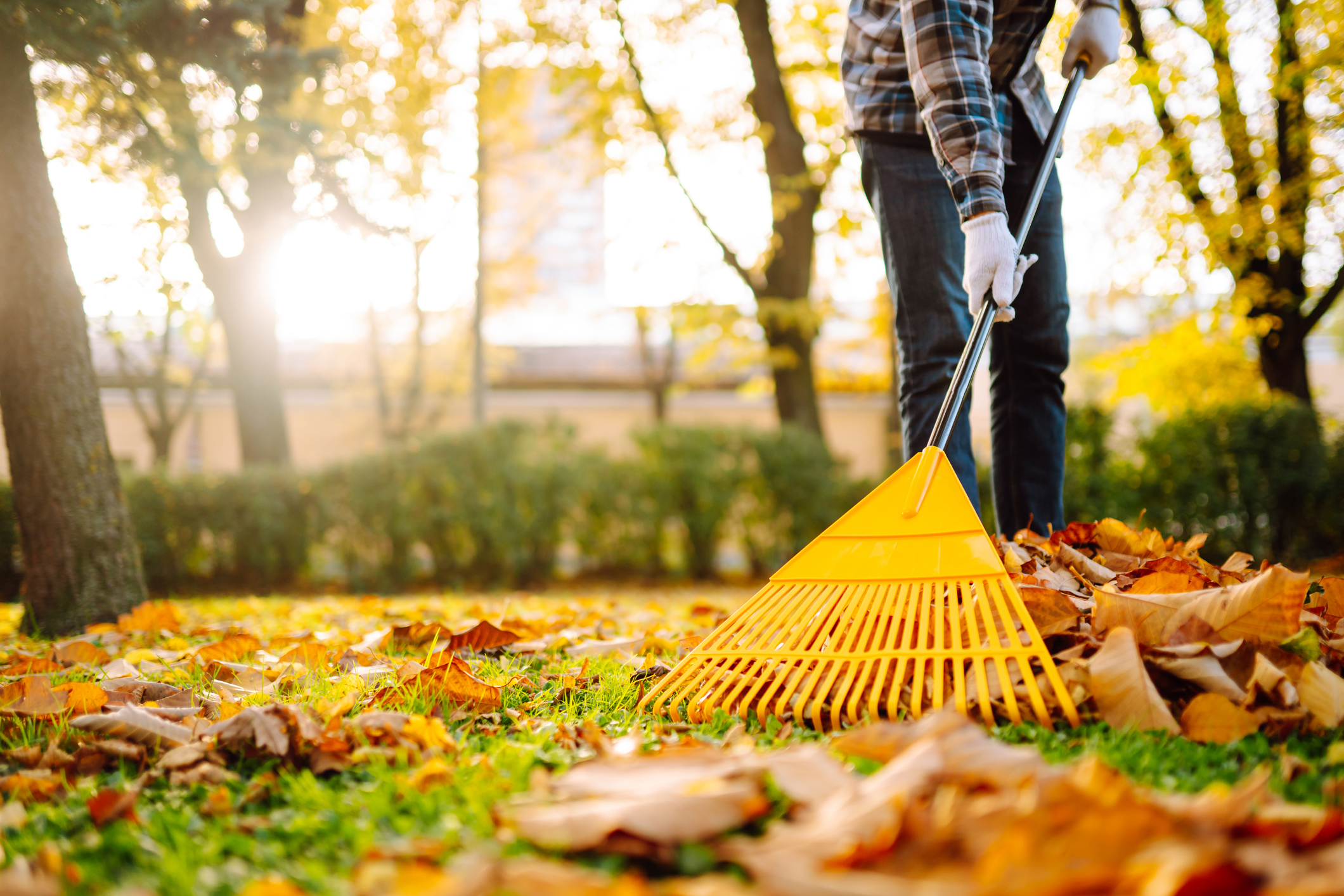
Cleaning for energy-efficiency
Here are some cleaning and maintenance tasks to consider that can help save energy and keep your cottage comfortable when you return:
- Inspect doors and windows: Check for air leaks and drafts coming from all of your doors and windows. Install or replace weatherstripping where needed. For poorly performing windows, try covering them with thermal curtains to help prevent cold air from seeping in. For doors with large gaps at the bottom, try a draft stopper.
- Offer your heating system some TLC: Typically, furnace filters should be replaced every 1-3 months in winter depending on your filter type and household conditions. Check all of your vents to ensure there are no obstructions and purposely close vents in spaces that will not need to be heated.
- Check for air leaks: Inspect around electrical outlets, pipes, and vents to feel if there are any cold air leaks. If so, seal them with caulking or weatherstripping.
- Optimize your thermostat: Consider purchasing a programmable thermostat that aligns with when you are home vs away to help you optimize your energy consumption
- Inspect insulation: Identify areas needing more insulation, focusing on exterior walls, the attic, and the basement.
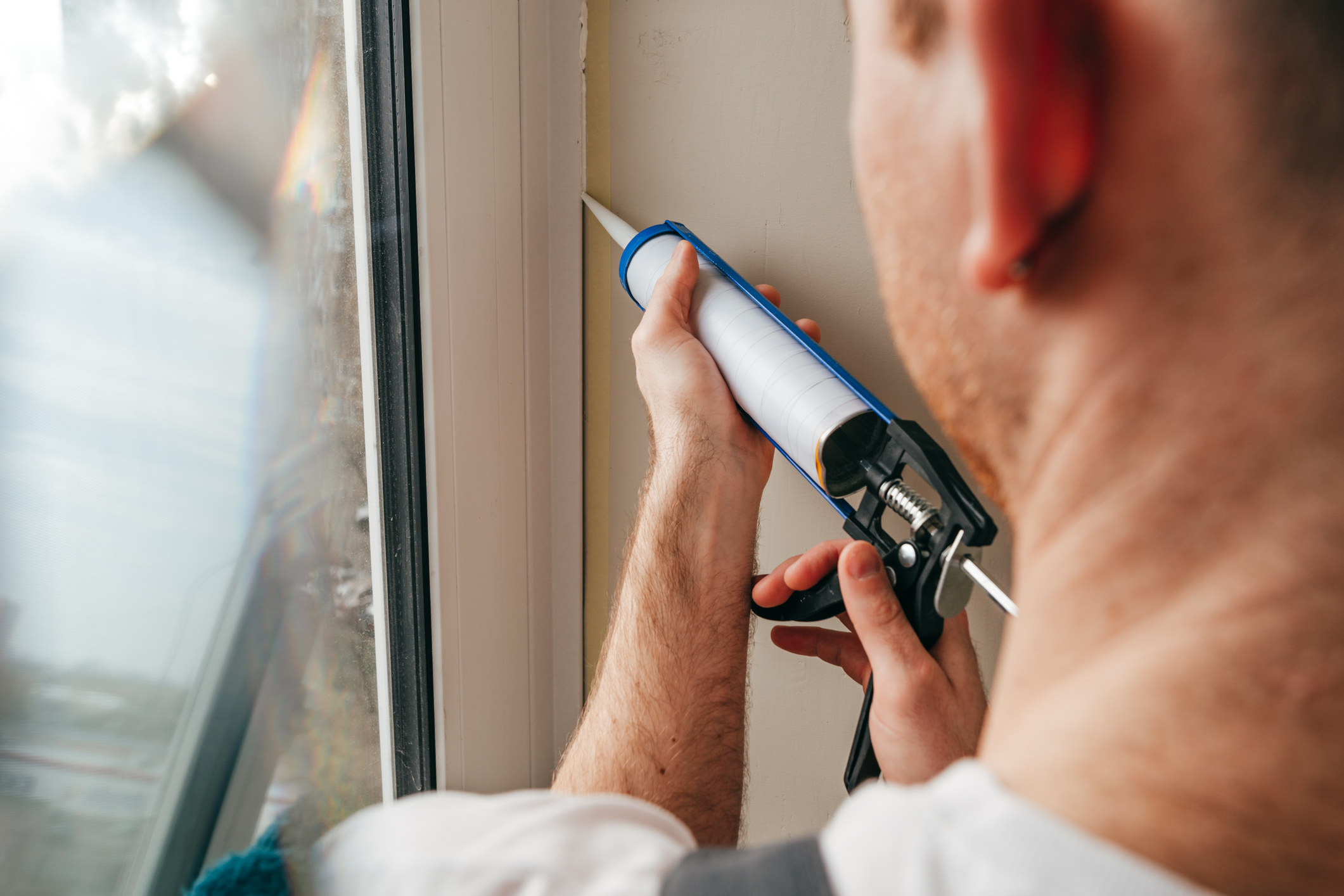
Avoid overhead hazards
Look up, look out! As you rake leaves and prepare your yard for winter, stay mindful of overhead power lines and the dangers they pose, your life’s on the line:
- Handle equipment safely: When cleaning the gutters or doing other maintenance, remember to handle equipment safely by carrying ladders, pruners, and other long equipment horizontally, and when standing upright, do so at least three metres (10 feet) away from overhead lines to minimize the risk of accidental contact with overhead lines. Always use tools with insulated handles, and avoid standing on wet ground while using electrical equipment outdoors.
- Tree trimming: Fall is a great time to prune trees as heavy snow and ice from the forthcoming winter can weigh down tree limbs and bring power lines down. If trees have already encroached upon the power lines or service wire that feed electricity directly into your home, contact us for help or request a temporary outage for tree removal on your property.
- Clear debris and obstacles: As you prepare your yard for winter, ensure that fallen branches, leaves, and other debris are cleared away from electrical equipment. This not only helps maintain a tidy yard but also reduces the risk of debris coming into contact with power lines during winter storms or high winds.
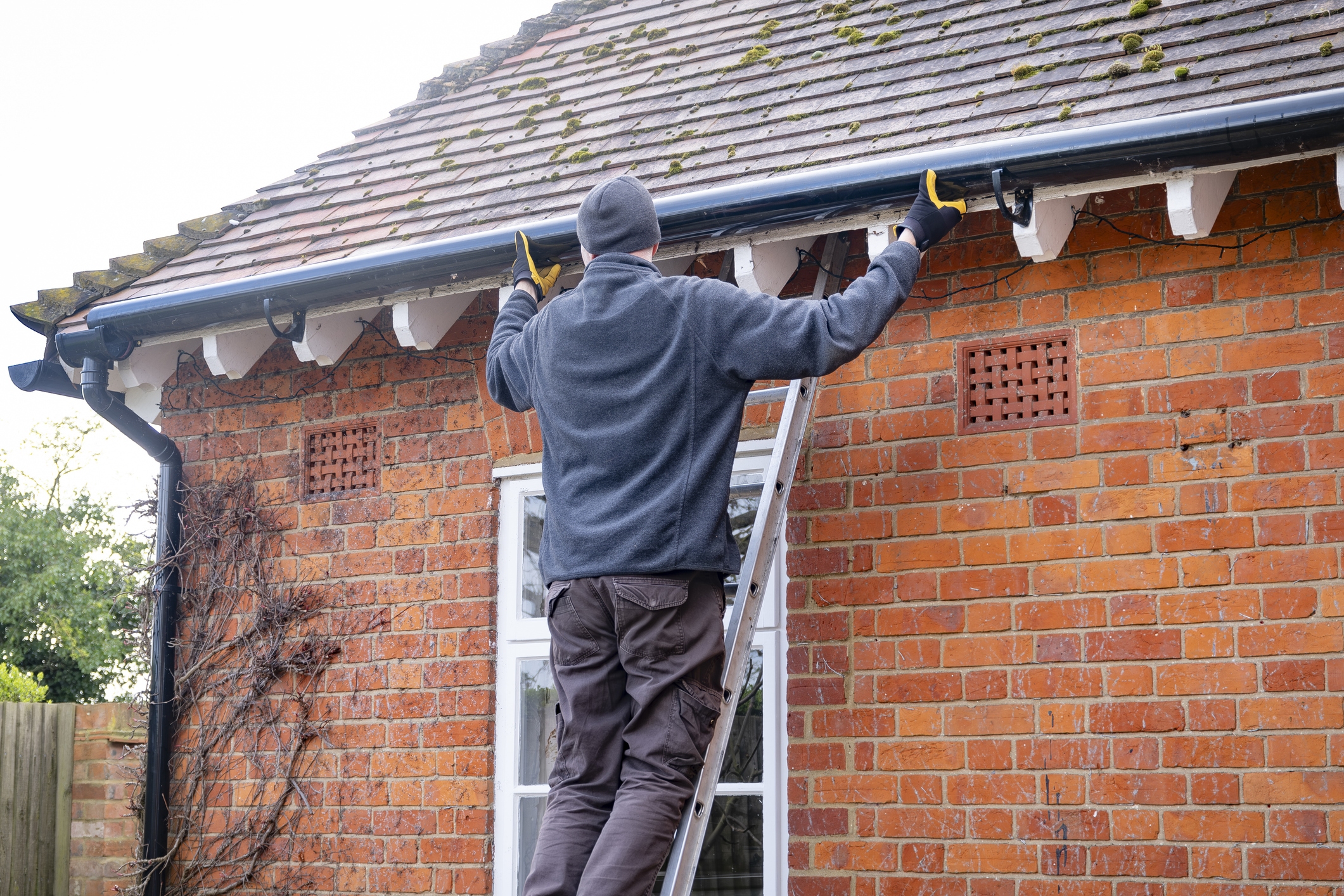
Outdoor lighting and decorations
As outdoor lighting and decorations make their seasonal comeback for Halloween and other celebrations, it’s essential to keep safety in mind. Here’s how to keep it safe:
- Use outdoor-rated lights: Only purchase electrical products from reputable sources and retail outlets, choosing lights certified for outdoor use
- Inspect cords and lights for damage: Before hanging up outdoor lights or decorations, inspect cords, plugs, and bulbs for damage. Replace any faulty equipment to reduce the risk of fire or shock.
- Avoid overloading circuits: Don’t plug too many lights into a single outlet, and always use Ground Fault Circuit Interrupters (GFCIs) for outdoor connections.
- Be aware of surroundings: We’re mentioning this again because we can’t stress it enough—it’s easy to forget to check for overhead power lines in the excitement of decorating!
- Turn off and remove decorations: Always turn off lights when leaving the house or going to bed. For weekend homes or cottages, ensure all outdoor lighting is off before heading home for the week. Leaving decorations up all season can create safety hazards, so take them down after the holidays.
- Prepare for winter: As you transition into winter, secure any remaining decorations and consider storing them properly to prevent damage from snow and ice.
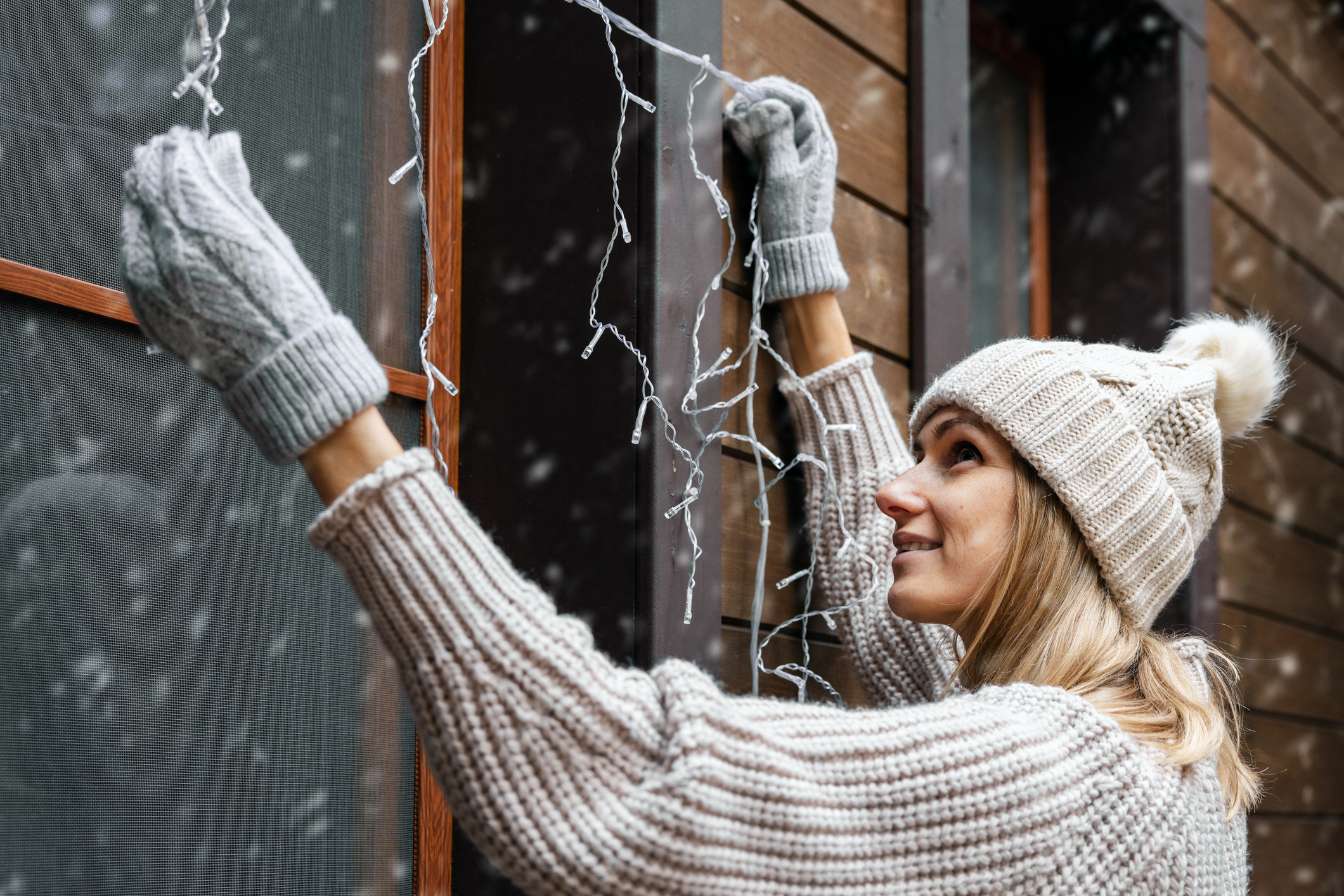
Be prepared for storms
Fall can bring strong winds and unpredictable weather, which may result in power outages. Preparing your home and cottage for these conditions can help keep you safe.
- Emergency kit: Make sure you are prepared for emergencies. Ensure your home has a well-stocked emergency kit, including flashlights, batteries, blankets, and non-perishable food.
- Backup power: If your area is prone to outages, consider investing in a backup generator. Be sure to use it safely by placing it outdoors, away from windows and doors, to prevent carbon monoxide poisoning.
- Protect your home from flooding: For cottages and properties in flood-prone neighbourhoods, having a backup sump pump is crucial. Flooding can occur rapidly during heavy rain or snowmelt, and a sump pump can help prevent water damage by keeping your basement dry.
- Stay clear of downed power lines: In the event of a storm, downed power lines can pose serious hazards. If you spot a downed power line, assume it is live and stay back at least ten metres (about 33 feet). It's important to report the situation immediately to 911 and your utility company. For Hydro Ottawa customers, you can report downed lines by calling 613-738-6400. If you're outside Hydro Ottawa's service area, please contact your local electricity provider.
- Stay informed about power outages: We know power interruptions can be disruptive, but you don’t have to be left in the dark. Visit our revamped Outage Centre for useful tools and resources, including our improved outage map, and sign up for Outage Alerts to receive real-time outage information via SMS/text or email. With timely updates, you'll stay prepared and informed every step of the way.
